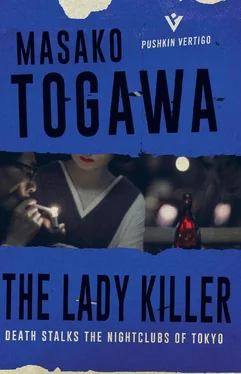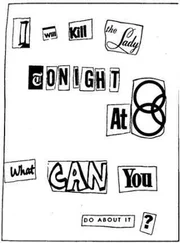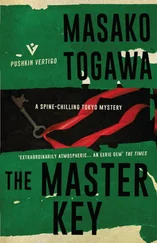She had changed and was ready to go home. “Were the books useful?” she asked.
“Oh yes, thank you. I found all I wanted.”
“So you are working on a case involving blood types? It must be pretty complicated.”
“Yes,” said Shinji, and then, summoning up his courage, “in fact, I am working on the defense of Ichiro Honda. You know, the Sobra case.”
Her countenance immediately darkened. “Oh, so you have only come to see me to talk business. Am I right?”
“Frankly speaking, yes, though it’s wonderful to see you again. Honda gave us the names of five women whom he could remember and… your name was one of them. A big coincidence, I felt,” he stated sadly.
The reading room was empty apart from the two of them; it was shrouded in silence, now that he had stopped speaking, broken only by the faint cries of students indulging in sports somewhere in the distance.
In this silence, there came back to him a memory of his primary school days. School had been over, and nearly everyone had gone home. Then, too, in the distance he had heard sounds—a faltering étude being played in a distant classroom.
And that was the time he had hit his friend who had passed an insulting remark about his father. Shinji’s father had been a mine broker and thus rarely at home, so the other children used to tease him by saying that his father must be in prison. Even when he grew up, Shinji believed he knew how children with fathers in prison must feel.
Bringing himself back to the present, he continued.
“Yes, a coincidence, one I didn’t really want to believe. So I put off seeing you till the last.”
Michiko hesitated a moment before speaking. Then, “It’s true,” she said quietly. “I did know him. I needed someone to talk to, someone who would speak to me in an endearing way. And he did that, which is why I went with him to the hotel. It was only once, though. You might as well know that.” She gathered up the books and walked toward the door and then, turning, spoke again.
“You must think I’m gullible. And worse still, I got pregnant by him.”
Shinji felt as if the ground was opening under his feet.
“Michiko! You can’t have!”
She smiled back at him quietly. “But I did. And my son is now nine months old. He has begun to speak baby talk.”
Shinji was flabbergasted. Michiko had borne Honda’s child. There had been nothing in the detective’s report about that. He ran after her. She stopped and gazed out over the campus, not looking at him.
“Yes, you must be surprised. My mother takes care of him, you know, so I can continue to work.”
“But didn’t you want Honda to recognize the child as his?”
“Why? It’s nothing to do with him. I decided to have the child on my own responsibility,” she said firmly. “So it’s mine, not his.”
Shinji realized that this woman had voyaged to lands of experience that were far beyond his ken.
“And you feel no anger or hatred toward him for his irresponsibility?”
“How can he be irresponsible if he doesn’t even know about it?”
Shinji was stumped for a reply. Eventually, he spoke.
“If it had been me… if I had fathered your child, would you have still kept silent?”
His words seemed to turn to bubbles as they fell from his mouth, so that his question was almost inaudible. It sounded as if he was speaking from the bottom of a deep lake.
“Had it been you, of course I would have visited you and asked you if you would have liked to be the father.”
She smiled at him and turned and walked out of the library, Shinji following her. They reached the gate. Shinji knew that he had nothing more to ask her. To ask if Ichiro Honda had put a rope around her neck was plainly quite meaningless.
Michiko turned. “Goodbye,” she said, and was gone.
Watching her retreating back, Shinji was at a loss as to what to do.
Of one thing he was certain beyond all doubt. He had lost something and it was gone forever.
5
Shinji climbed the cavelike staircase, his footsteps the only sound echoing in the dim gloom. Up and up: seven floors, and his feet, worn out by walking all day, felt like lead. After six the elevators ceased to function and the hall lights were turned off. At last he reached the seventh floor and paused to wipe the sweat from his brow.
He opened the office door. Here, too, dusk had fallen deeply. Mutsuko Fujitsubo, secretary to his chief, was sitting all alone, a vacant expression on her face. She was a modest-looking but ill-favored girl, with her heavy glasses with their thick, amber-colored rims, and she had joined the office immediately after graduating from junior college two years before.
“Hello! Sorry to be back so late! Is the old man still around?”
“Yes. He’s reading the report from the detective agency.” She pointed resignedly to the door at the far end of the office, worn-out by the long wait.
Shinji washed his face with cold water and, refreshed, went into Hatanaka’s room, the girl following him, her shorthand pad in her hand.
The old man straightened up in his deep chair. “You’ve been working hard, I see.” He spoke gruffly, his voice seeming strangled by phlegm. Shinji sat down and without further ado took out his notebook and, watching the girl out of the corner of his eye to see that she did not fall behind, began to make his report. In all that silent building about which the dusk had fallen, it seemed as if only his voice could be heard.
“Today, I completed my interviews with all the women on the list. It transpired that they had all been interviewed by the police, and that the thrust of their questions was the same as mine: did Ichiro Honda ever attempt to strangle them?”
“And did he?”
“I couldn’t get a word out of two of them. And even with the others, you must realize, it wasn’t an easy question to come right out with. But the three who would talk… two denied it plainly, and it was clear to me that there was no such incident in the third case.”
“No wonder they were not called to give evidence by the prosecutors,” snapped the old man.
“Yes, but why didn’t the defense summon them?” asked Shinji.
“Because the fools were trying to cover up his relationships with women! They thought it best to conceal the fact that he was a lady killer; I disagree with them entirely, of course. Honda Ichiro was on trial in a court of law, not a court of morals!”
Just what I thought , too, thought Shinji approvingly. He went on: “I did find out something quite interesting today, though. Michiko Ono, who works at a library, has a nine-month-old son and claims that the father is Ichiro Honda. If we work on her, she might be persuaded to give evidence on our behalf.”
“And for how long did her relationship with Honda last?”
“Only just the once,” said Shinji sheepishly, and the old man groaned audibly.
“But the child isn’t mentioned in the detective agency report. I wonder why she told you about it?”
Shinji realized that he would have to confess. “Well, I knew her when I was a student,” he said. “I was in love with her for a time. I suppose that’s why she told me.”
The old man was silent. The secretary, her pencil stilled, set her shoulders in a pose suggesting astonishment. The sun had finally set, and the desk light was hardly enough to see by. “I’ll put on the light,” said Shinji, breaking the silence. He got up and went to the switch, his motions disturbing the air of the room, which had become like a sealed tomb. The old man slowly lit a fresh cigar.
“And does this young woman, what’s her name?”—gazing at the report—“Michiko Ono, does she have any intention of telling Honda about the happy event?”
Читать дальше












